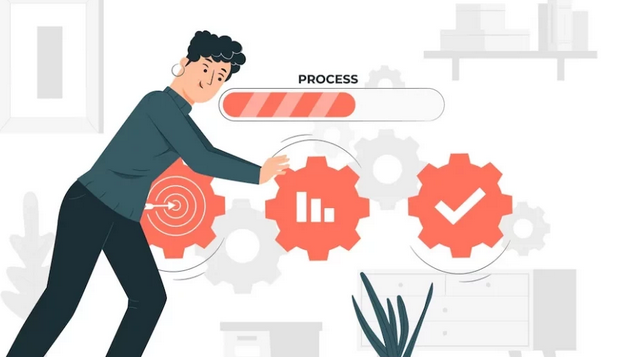Click-through rate (CTR) is a vital metric for anyone in the digital marketing world. It measures the number of clicks an ad receives and divides them by the total impressions it gets. As a result, CTR is often seen as a key indicator of an ad’s performance and success.
But what happens when this metric is manipulated? Enter the controversial realm of CTR manipulation service.
In this article, we’ll dive deep into the concept, its implications, and the ongoing debate surrounding it. Let’s get started!
What Is CTR Manipulation Service?
CTR manipulation service refers to the act of artificially inflating a website’s click-through rates. This is often done by using automated bots or hiring individuals to constantly click on ads, increasing the overall number of clicks and making it appear that the ad is performing well.
This can be achieved through various click manipulation tactics, such as:
Click Farms
Click farms are essentially a network of individuals who are paid to click on ads or links. These people may be located anywhere worldwide and are often paid very low wages for their services.
Bots
Bots are automated software programs that simulate human behavior. They can generate clicks on ads or links, making it seem like real people interact with them.
Software Programs
Some companies offer specialized software programs that claim to manipulate CTR by mimicking the behavior of real users. These programs often come with a hefty price tag and promise significant increases in CTR.
Some companies claim to use sophisticated algorithms that mimic real user behavior to manipulate CTR. They offer their services for a fee and promise to significantly increase the CTR of their clients’ ads or websites.
The Allure of Higher CTR
Why do people engage in CTR manipulation? The answer lies in visibility.
In the online world, higher CTR often translates to better visibility. When ads have a high CTR, it means they are getting more clicks and reaching a larger audience. This can lead to increased sales or conversions for businesses.
Additionally, a high CTR can also improve an ad’s quality score. This results in lower costs per click (CPC) for advertisers.
Naturally, this makes the idea of CTR manipulation alluring to businesses and marketers who want to boost their online presence and bottom line. However, not everyone is on board with this practice.
The Debate: Is It Ethical?
With the increasing competition in the digital marketing space, many companies are willing to resort to any means necessary to get an edge over their competitors. And unfortunately, manipulating CTR has become one of those means.
Critics argue that CTR manipulation is unethical. This is because it goes against the principles of fair competition. It also promotes fraud and deception in the digital marketing industry.
On the other hand, some defend CTR manipulation. They cite that it’s a common practice used to level the playing field against bigger competitors with larger budgets. They also argue that as long as the ads are relevant and provide value to users, they shouldn’t be considered unethical.
The Implications of CTR Manipulation Service
Regardless of where you stand on the ethical debate, CTR manipulation service has significant implications for the digital marketing industry. These include:
Inflated Ad Costs
When CTR is manipulated, it creates a false sense of success for the advertiser. This can lead to them investing more money into their ads, resulting in inflated ad costs.
Ad Fraud
CTR manipulation service also contributes to ad fraud, which is estimated to cost advertisers billions of dollars each year. This further damages the integrity of digital marketing and makes it difficult for legitimate ads to compete.
Damage to User Trust
When users realize that the ads they are clicking on have been artificially inflated, it can damage their trust in the brand and the digital marketing industry as a whole. This can make them less likely to engage with future ads or purchase from those businesses.
The Positive Side of CTR Manipulation Service
While there are valid concerns and implications related to CTR manipulation services, some argue that it can also positively impact the industry.
Here are a few potential benefits of CTR manipulation:
Increased Competition
CTR manipulation can level the playing field for smaller businesses. It gives them a chance to compete against bigger players in their industry. This can lead to more diverse and competitive markets.
Better Targeting
By manipulating CTR, businesses can gather data on which ads are most successful in generating clicks. They can then use this information to refine their targeting and create more effective ad campaigns in the future.
Tapping into SEO experts at LinkDaddy for CTR manipulation services could also result in more accurate and targeted marketing efforts.
Improved Performance Metrics
These services may seem like a quick and easy solution for advertisers solely focused on increasing CTR. They can see an immediate boost in their performance metrics, making it appear as though their ads are successful.
When it comes to organic traffic manipulation, some argue that it can help improve a website’s search engine rankings and boost its credibility. This, in turn, can lead to increased organic traffic and improved website performance.
The Future of CTR in Digital Marketing
The debate surrounding CTR manipulation is ongoing, with no clear resolution in sight. While some believe it will continue to be a common practice, others predict that stricter regulations will be implemented to prevent it.
Ultimately, it’s up to businesses and marketers to decide whether they want to engage in CTR manipulation. However, it’s essential to weigh the consequences carefully before deciding.
Moreover, choosing a service provider that uses ethical and transparent methods is crucial. This ensures that your online presence and reputation are not compromised when pursuing higher CTRs.
Delving Into the Intricate Landscape of CTR Manipulation Service
The world of CTR manipulation service is a complex and polarizing one. While some consider it a valuable tool for boosting online visibility and traffic, others see it as a deceptive and unethical practice.
It is essential for businesses and marketers to carefully consider the consequences and alternatives before resorting to such tactics. In the end, building a genuine online presence and gaining consumers’ trust should be the ultimate goal. So, choose wisely!
Was this article helpful? If so, check out the rest of our site for more informative content.


















![Otto Insurance Review [2024]: Does It Actually Offer Insurance? otto insurance](https://www.techpreview.org/wp-content/uploads/2024/04/otto-insurance-reviews-1-64d5cc741e012-238x178.webp)
